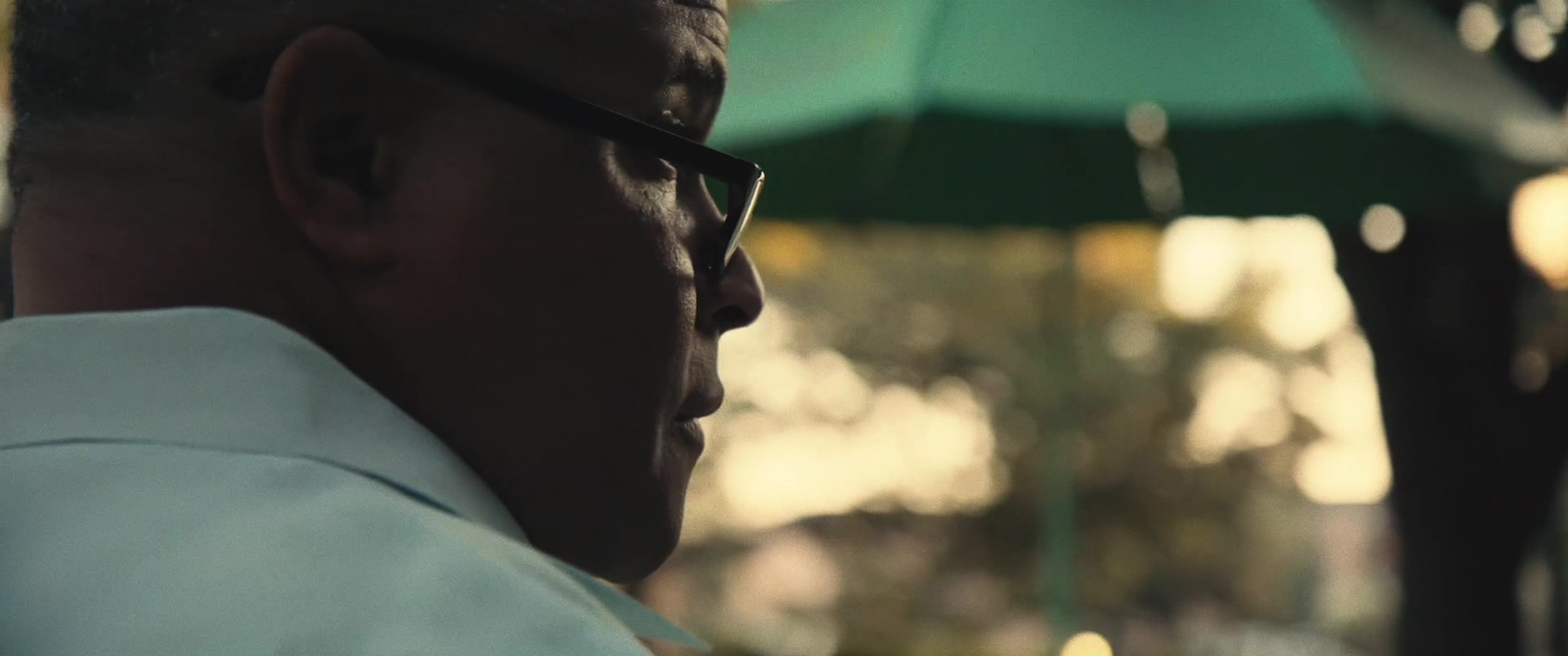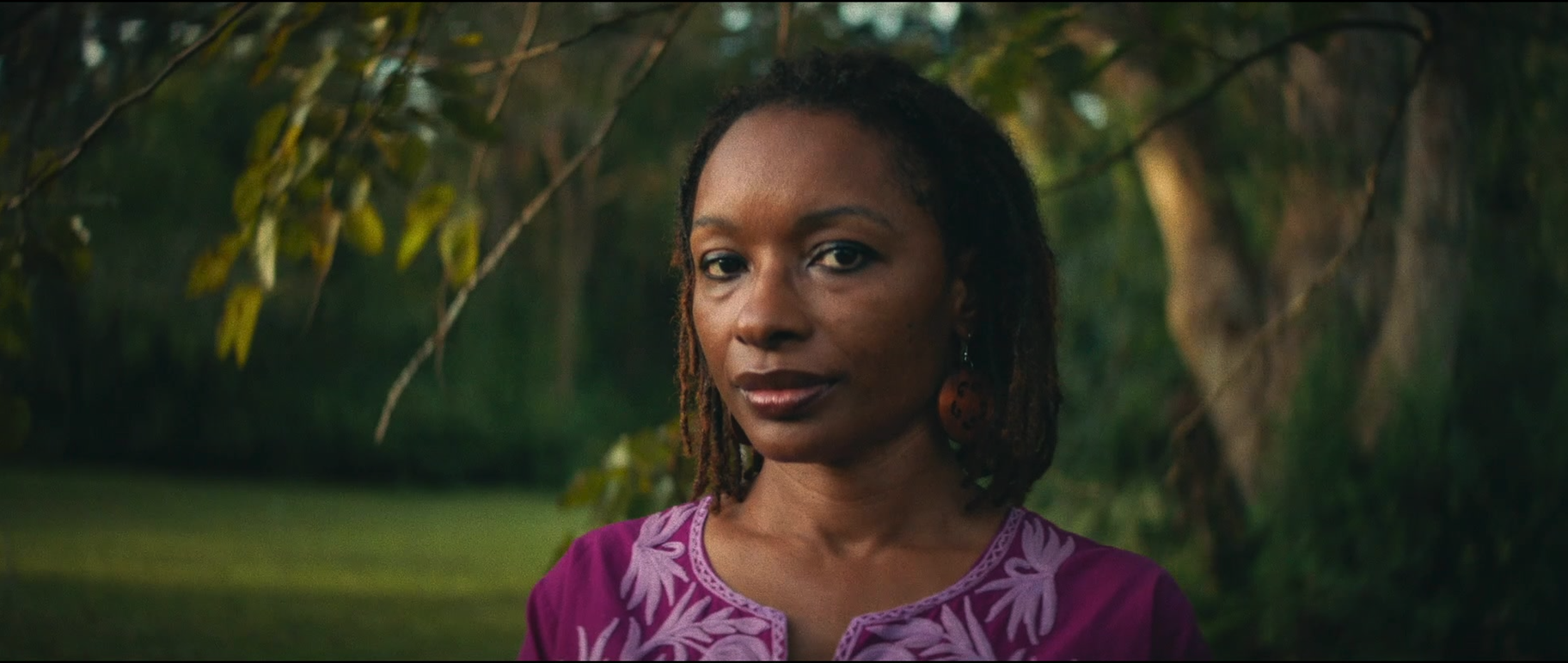While director Margaret Brown was working on her 2008 documentary “The Order of Myths” – focusing on the segregation of Mardi Gras in Mobile, Ala., the contradictions of preserving the traditions of the South and race relations – she heard two stories about the slave trade in her hometown that piqued her interest.
First, Brown’s mother pointed out that the family of the white Mardi Gras queen, debutante Helen Meaher, had built Clotilda, the last known ship to smuggle slaves to the United states in 1860. Then, the filmmaker heard from the Black Mardi Gras Queen’s grandfather that his ancestors were brought on that ship to be sold here.
“I looked at the cinematographer, and he looked at me, and the ground just sort of shifted under us,” she says. “One thing I love about documentaries, you never know what's going to happen.”
From those conversations, Brown pursued her latest film “Descendant,” which features family members from the enslaved Africans brought to Alabama in the Clotilda, their pursuit for justice and healing, the history of Africatown – the community founded by newly emancipated African Americans along the Mobile-Tensaw River Delta – and the quest to find the ship’s remains.
The Clotilda
Clotilda was the last last known ship carrying slaves from Africa in July 1860. After it was illegally anchored in Mobile Bay, Ala., its capitan, William Foster, unloaded 110 men, women and children, then set it ablaze in order to destroy any evidence of wrongdoing.
About five years ago, a story broke that a storm may have unearthed the Clotilda in the lower Mobile-Tensaw Delta. It turned out not to be the artifact. “The community calls it ‘the Notilda’ because it was a false start,” Brown says. She decided to go to Alabama anyway to start working on her new film.
A year later, the Alabama Historical Commission and SEARCH Inc., a group of maritime archaeologists and divers who specialize in historic shipwrecks, authenticated another ship as being the Clotilda.
Non-accessibility and Whiteness
Being from Mobile, Brown knew the people and would have more accessibility. She thought she could get the Meaher’s to talk to her, after all, Helen Meaher – the Mardi Gras queen featured in her documentary “The Order of Myths,” and who had talked about her family’s Clotilda history on film – had accompanied the filmmaker to the Sundance Film Festival. Timothy Meaher was the merchant who in the 1850s built and financed the Clotilda.
“But this time, the family wouldn't talk,” Brown says. “White families were afraid to talk to me, [they] were connected to Clotilda and the industrial blight that surrounds Africatown.”
When she started filming “Descendant” she also believed the film would be about the American South and all its complexities, but not being able to talk to the white families, the story changed. “I was like, ‘Now, I'm suddenly a white woman making a film about the Black experience’.”
As a white filmmaker she felt the story of Africantown was not hers to tell, but she had already devoted two years into the project. “I still wanted to be the director, but I definitely questioned, ‘Should I keep going?’ It was hard,” she says.
One approach Brown took was to strengthen partnerships. She was already consulting with Dr. Kern Jackson, the Director of African American Studies at the University of South Alabama and folklorist, who co-wrote, co-produced the film with her and appeared in it. “I didn't want to center myself in the film. I didn't feel that was appropriate,” she states.

Dr. Kern Jackson, the Director of African American Studies at the University of South Alabama and folklorist, in “Descendant.” Photo courtesy of Netflix.
The Blind Spots
“I felt [that] as a white person, I had many blind spots that unless I had strong collaborators, I would miss them, and it wouldn't be a film that was for everyone,” she affirms.
Another collaborator on the film is Essie Chambers, who is also producer. She helped Brown understand subtlenesses of blind spots in the production. “People would think of these things I'm going to talk about as small things, but they're actually not small things if you talk about centering Blackness,” she explains.

“It's been such a privilege to see [Questlove] connect to his family in Africatown,” Margaret Brown says. Musician Ahmir Khalib Thompson, aka Questlove, at the “2021 Ebony Power 100” at the Beverly Hilton Hotel, in Beverly Hills, on October 23, 2021. Photo by Kathy Hutchins/Shutterstock.
Getting “Questlove” involved
Brown’s friend, who worked with Henry Louis Gates, told her that actor, musician and producer Ahmir Khalib “Questlove” Thompson was featured in a couple of “Finding Your Roots” episodes on PBS, in which Questlove finds out he has an ancestral connection to Clotilda. When Brown saw them, she knew he was essential to the project.
But she waited to approach him. “You get one shot with celebrities, and I just really wanted [him] to say yes,” she says, which he did.
Only when the film was close to completion, she asked for his assistance. “I tried to hit the sweet spot where I could still get feedback and get help with the score and things like that. It's been really incredible.”
Zora Neale Hurston and Cudjoe Kazzola Lewis
Brown also incorporated footage from American author, anthropologist, and filmmaker Zora Neale Hurston shot in 1928 in Africatown and one of its founders, a slave brought in the Clotilda to the U.S., Cudjoe Kazzola Lewis.
“To this day, it gives me chills,” Brown says. “When you think about history, as being the past, there's that thought in your quote that everyone always says, but it's so true, ‘The past isn't dead, it's even past.’ I felt like this was so true for this film. You could connect so clearly what was going on in the present to like the past. There was a sort of looping happening.”
From the footage, notes and photographs gathered, Hurston wrote the non-fiction book “Barracoon: The Story of the Last "Black Cargo", about the life of Lewis, which was published posthumously in 2018. Brown was already filming “Descendant” whent the book came out, so she used it to inspire her around the story.
“I just fell in love with her and realized pretty early on that I wanted her words to be a huge part of the movie,” Brown says.

Veda Tunstall's great-great-great grandparents, Pollee and Rose Allen, were among the 110 aboard the Clotilda. Courtesy photo of Netflix.
Participant and Higher Ground Media
Participant is the studio that worked with Brown on the film, and one of the things it does after the film launches is an impact campaign in the community, which Questlove has been involved in.
When “Descendant” was screened at the 2022 Sundance Film Festival, Netflix, which has a deal with Obama's Higher Ground Media, approached Brown to buy the film. “We're very excited to say the least,” she says. “That's an understatement of the decade.”
The film received the U.S. Documentary Special Jury Award for Creative Vision at the festival.
What’s next?
As the Clotilda exploration unravels, things continue to unfold in the region.
Brown says the lumberyard that surrounds Lewis Quarters neighborhood in Africantown decided to move weeks before Netflix released the film, “which is wonderful, and we wonder what that's motivated by?” she ponders. Africatown is surrounded by heavy paper mills, petroleum tanker farms, power, cement, asphalt, and chemical plants, all of which have released cancerous chemicals into the air, water and soil.
Also, the Africatown Heritage House, a $1.3 million project, that will eventually house and exhibit the story of the Clotilda ship and the slaves aboard.
“There's this very robust conversation about what to do with [Clotilda], what's the most appropriate thing to do that would benefit the community the most,” Brown says. Though the project has been delayed because of the pandemic, it is slated to open in the fall.
“Descendant” is now streaming on Netflix. Learn more about the movie’s Impact Campaign at https://www.descendantfilm.com/.
